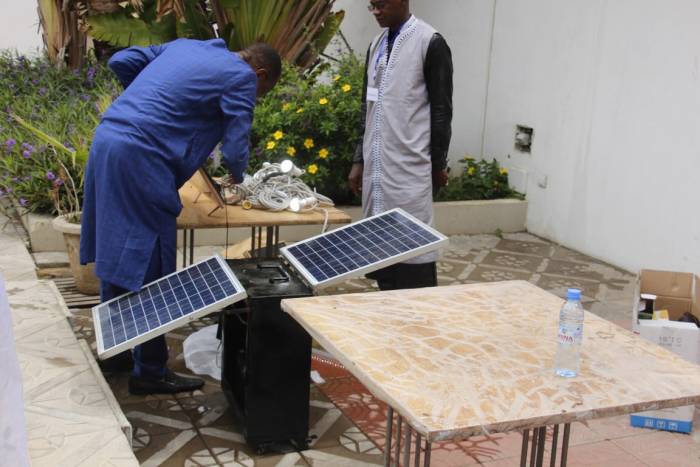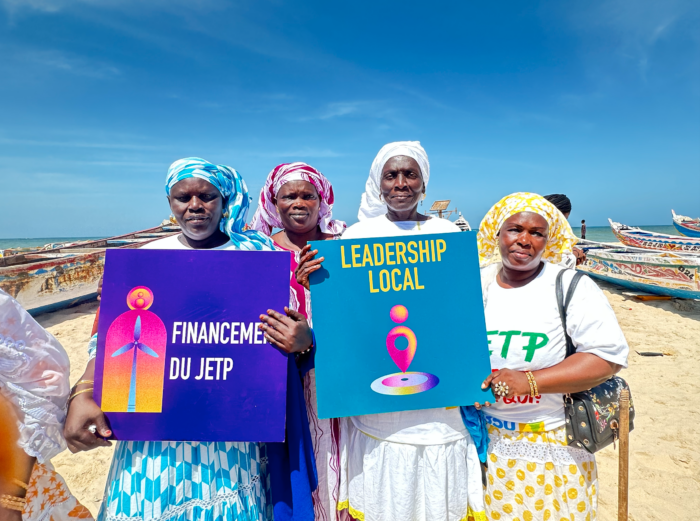350
Just Energy Transition Partnerships
From Promise to Practice: Ensuring JETPs can deliver
What are JETPs?
As the world continues to wean itself off fossil fuels, coal-dependent emerging economies have a winding road ahead. One of the most important questions on the global climate agenda is how to help these developing economies decarbonize their energy systems while simultaneously transitioning into resilient, affordable, and clean energy infrastructure. One model that is gaining momentum is a funding agreement known as Just Energy Transition Partnerships (JETPs).
JETPs are an innovative approach of international cooperation to accelerate country-led energy transition. The model is supported by the International Partners Group (IPG) composed of the European Union (EU), the UK, the US, Japan, Germany, France, Italy, Canada, Denmark and Norway. Collectively they aim to help emerging economies secure a just transition towards low carbon energy sources, with equity considerations at their core.
Stay tuned!
350.org is working on a global set of principles signed by Civil Society Organizations in JETP recipient countries that will underscore what is expected from leadership.
Sign up here to receive updates, more stories and resources!
Case Studies
“Just Transition” is a principle, a process and a practice
People are at the core of a Just Energy Transition.
Principles without application are simply ideals; good only for political platitudes and ‘what-ifs’. At 350.org, we don’t believe in ‘what-ifs’ — we believe in tangible, real solutions. So we’ve connected with frontline communities and documented existing solutions in JETP recipient countries that place the community at the heart of the solution and demonstrate the principles in practice, or outline where their implementation may be improved.
We believe projects like the ones below should be supported by the funds that come in through the Just Energy Transition Partnerships — and will continue to document more cases like these to demonstrate the possibilities of a community-centred energy transition.

Karangtengah Village, Indonesia
“It is very possible to involve the role of the community when implementing a JETP in Indonesia. In fact, JETP funding has the potential to be directed to the community to contribute to achieving the target of reducing emissions and the mix of renewable energy in Indonesia, for the power generation sector, 34% in 2030”
– Suriadi Darmoko, 350 Indonesia campaigner
The community in Karangtengah Village, Cilongok District, Banyumas Regency, Central Java has been utilizing the Telaga Pucung Micro Hydro Power Plant (PLTMH), since 2012. Sunarto (49), one of the pioneers of the Telaga Pucung PLTMH said, now, he can run a photocopying business, selling frozen food and cold drinks. Electricity bills for household and business needs, average IDR 100,000/month.
The electricity bill is cheaper than the electricity connection from PLN (State Electricity Company) which uses a coal power plant. Some of the villagers also refused the electricity connection from the PLN. They prefer the electricity connection from the Telaga Pucung Micro Hydro Power Plant. (Rewritten based on news in Suara Merdeka media).

Oolu Solar, Sénegal
“The success of a JETP calls for a participatory process that provides for consultation and inclusion of the Senegalese citizens. It is a chance for Senegal to make a major step forward in its transition to a clean energy future. It is important that the funds are used judiciously and that they are channeled to renewable energy projects that will benefit the people of Senegal and the planet”
– Aly Sagne, Founder of Lumière Synergie pour le Développement
Oolu Solar, a Senegal-based off-grid solar startup since 2015, offers a compelling alternative to the state-provided energy solutions in Senegal and West Africa. They collaborate closely with local communities to provide high-quality, affordable solar products. Many of the villages they serve previously lacked access to electricity, significantly impacting their well-being.
Initially, Oolu Solar introduced a kit model featuring solar-powered lights, charged by solar panels and batteries. This replaced the need for candles and was offered through flexible monthly payments over 18, 24, or 36 months, tailored to income frequency. Once payments were complete, customers became owners of their systems. This adaptable model is customized to suit each zone’s specific needs, reflecting Oolu Solar’s commitment to understanding and addressing community requirements.
As the communities became accustomed to the lighting kits, Oolu Solar expanded its product range to include radios, TVs, and fans. Today, they have installations in every region of Senegal and five other West African countries, demonstrating their commitment to providing practical and tailored energy solutions that significantly improve lives.
Want to know more?
Here is some more in-depth content on JETPs, from 350.org, our partner organizations, or the media.
News & Updates
.


